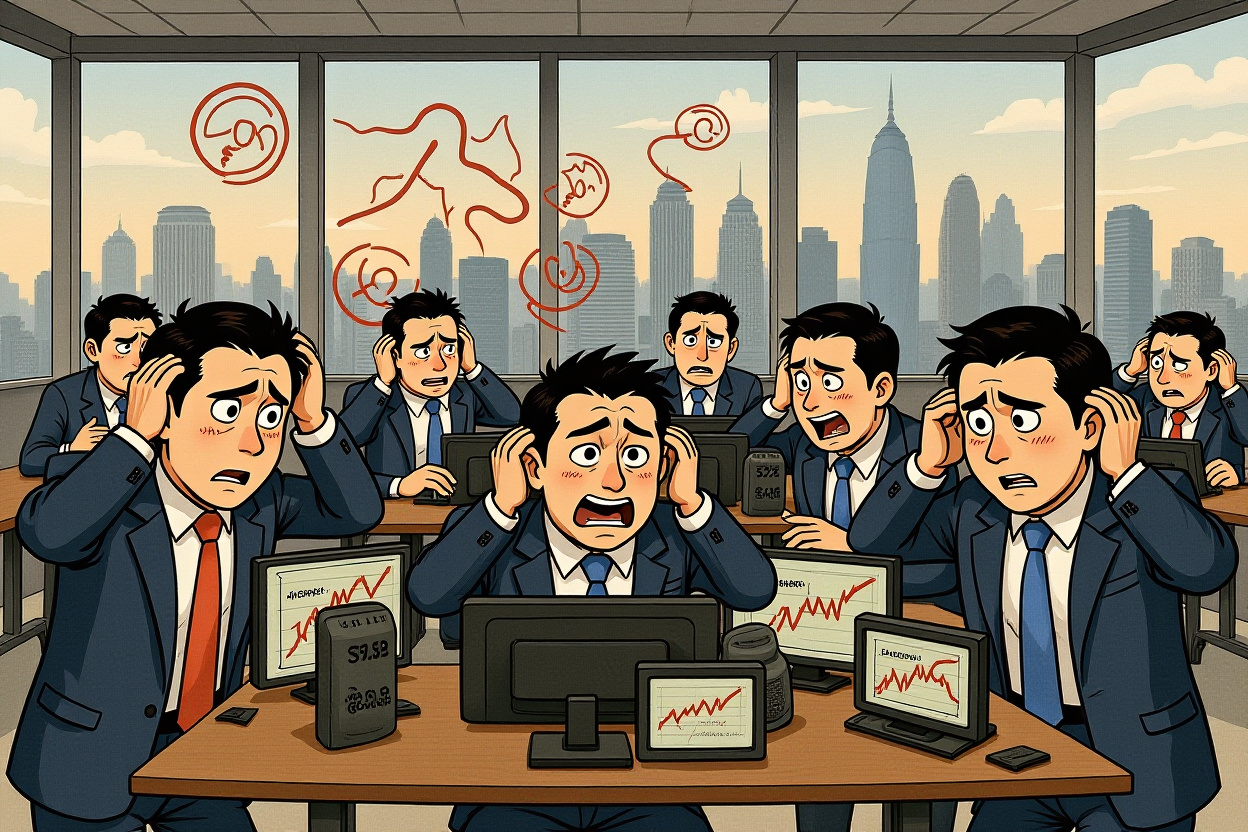The Political Earthquake That Shook Argentina’s Markets
Argentina’s financial markets experienced a perfect storm on Monday as political shockwaves from a key provincial election reverberated through every asset class. The decisive defeat of President Javier Milei’s party in Buenos Aires province sent investors scrambling for exits, creating one of the most severe market routs in recent Argentine history. This electoral outcome has fundamentally altered the political calculus for Milei’s administration and raised serious questions about the viability of his ambitious economic reform agenda.
The election results came as a stunning surprise to markets and pollsters alike. The Peronist candidate secured a commanding 47.3% to 33.7% victory margin, representing approximately a 13-point gap that far exceeded expectations. This decisive outcome suggests that Milei’s coalition faces significantly greater challenges in the upcoming national midterm elections scheduled for October 26th. The market’s violent reaction reflects deep concerns about political stability and economic policy continuity.
Why This Particular Election Mattered So Much
Buenos Aires province represents Argentina’s most important electoral district, containing nearly 40% of the country’s population. A strong showing here was considered essential for Milei to build momentum ahead of the national midterm elections. The overwhelming defeat suggests that the president’s radical economic overhaul program, which includes massive spending cuts and deregulation, may lack the popular support needed for long-term implementation.
Market participants had been closely watching this election as a barometer of political sentiment. The unexpectedly large margin of defeat triggered immediate concerns about Milei’s ability to advance his legislative agenda through a potentially hostile Congress. This political development directly threatens the implementation of Argentina’s economic reform agenda, which markets had been betting on since Milei’s surprise presidential victory.
The Triple Market Collapse: Currency, Stocks, and Bonds
Argentina’s financial markets responded to the election news with a synchronized collapse across all major asset classes. The selling pressure was so intense that it created one of the worst single-day performances in Argentina’s modern financial history. This triple market crash reflects how deeply interconnected political stability and economic confidence have become in contemporary Argentina.
The Argentine peso led the downward spiral, plummeting 5.6% during trading before closing 3.1% lower at a record 1,407 pesos per US dollar. This represents yet another chapter in the peso’s long history of depreciation, but the speed and timing of this move particularly alarmed traders. The currency’s collapse forced the central bank to intervene in foreign exchange markets, highlighting the fragility of Argentina’s monetary situation.
Stock Market Carnage
Equity investors faced even steeper losses than currency traders. Argentina’s benchmark MERVAL index (.MERV) crashed by 13%, while the index of Argentine stocks trading in the United States (.BKAR) plummeted an astonishing 18%. These losses wiped out billions of dollars in market capitalization and extended a downward trend that had already seen Argentine stocks fall approximately 20% over the previous month.
The selling was broad-based, affecting companies across multiple sectors. Banking stocks were particularly hard hit due to their sensitivity to economic conditions and currency stability. Energy companies also suffered significant losses amid concerns that political instability could disrupt much-needed investment in Argentina’s vast energy resources.
Bond Market Turbulence
The debt market experienced its own version of panic selling. Argentina’s 2030 bonds fell by 5.875 cents, marking their largest single-day decline since the country’s 2020 debt restructuring. This dramatic move exceeded even the pessimistic forecasts from major investment banks, with Morgan Stanley having warned before the election that bonds could fall up to 10 points if Milei’s party suffered a significant defeat.
The bond market reaction is particularly significant because it reflects international investor sentiment toward Argentina’s creditworthiness. The sharp decline suggests that global bond traders are increasingly skeptical about Argentina’s ability to service its debt obligations amid political uncertainty and economic challenges.
Institutional Analysis: What the Experts Are Saying
Financial institutions and research firms have been quick to analyze the implications of Argentina’s political shock. Their assessments paint a concerning picture of the challenges facing Milei’s administration and the potential consequences for Argentina’s economic stability.
UBS analysts highlighted the foreign exchange market as the critical focal point, warning that any instability could create cascading effects across all Argentine assets. They emphasized that currency stability is fundamental to restoring investor confidence and implementing sustainable economic policies.
JPMorgan focused on the political dimension, noting that the government’s policy choices in response to this political setback will determine the success or failure of inflation control and stabilization efforts. The bank’s analysts suggested that the coming weeks would be crucial for demonstrating policy consistency and political resilience.
Barclays raised concerns about the sustainability of the central bank’s foreign exchange interventions. If the economy ministry continues selling dollars to support the peso, markets may increasingly doubt the authorities’ ability to maintain currency stability ahead of the October midterm elections.
Morgan Stanley’s Dramatic Reversal
Perhaps the most telling institutional response came from Morgan Stanley, which abruptly withdrew its buy rating on Argentine assets just days after issuing it. This rapid reversal underscores how completely the election outcome changed the investment thesis for Argentina. The bank’s analysts had apparently underestimated the political risks facing Milei’s reform agenda.
This withdrawal of support from a major international investment bank represents a significant blow to market confidence. When institutions of Morgan Stanley’s stature reverse their positions so dramatically, it often triggers additional selling from funds that follow their recommendations.
The Backdrop: Pre-existing Market Pressures
While the election result served as the immediate trigger for Monday’s market collapse, Argentina’s financial markets had already been under significant pressure. Understanding these pre-existing conditions helps explain why the reaction was so severe.
Over the previous month, Argentine stocks had already declined approximately 20%, reflecting growing investor concerns. International bonds had been experiencing persistent selling pressure, and the peso had been weakening since the abandonment of the currency peg mechanism. These trends suggested that market sentiment was already fragile before the election shock.
The Corruption Scandal Factor
Adding to the government’s challenges, President Milei’s sister and key political operative, Karina Milei, had recently become embroiled in corruption allegations. This scandal damaged the administration’s image and raised questions about its commitment to the anti-corruption rhetoric that had been a centerpiece of Milei’s campaign.
Corruption allegations are particularly damaging in Argentina, where numerous previous administrations have been tainted by similar scandals. For a government that came to power promising to break with the practices of the past, these allegations struck at the heart of its political identity.
The IMF Factor and International Implications
The International Monetary Fund’s role in Argentina’s economic situation adds another layer of complexity to the current crisis. The IMF had recently approved a $20 billion loan program for Argentina, with $15 billion already disbursed. This financial support was contingent on Argentina implementing specific economic reforms and maintaining fiscal discipline.
The election outcome raises questions about whether Argentina can continue to meet the IMF’s conditions amid political uncertainty. If the reform program stalls or reverses, it could jeopardize future disbursements and potentially trigger a new round of negotiations with the international lender.
As of now, the IMF has not publicly commented on whether the election results affect its cooperation with Argentina. However, analysts widely expect that the Fund will be closely monitoring political developments and their impact on economic policy implementation.
Looking Ahead: Uncertainty and Critical Choices
The path forward for Argentina remains highly uncertain. Political risk has emerged as the dominant factor influencing market sentiment in the lead-up to the October midterm elections. How the Milei administration navigates this challenging period will likely determine the country’s economic trajectory for years to come.
The government faces difficult trade-offs between currency stability, inflation control, and political considerations. Its ability to maintain investor confidence while addressing popular concerns about economic hardship will be tested in the coming weeks and months.
Market participants will be watching several key indicators: the central bank’s foreign exchange interventions, inflation data, political maneuvering in Congress, and any signals from the IMF regarding continued support. Each of these factors will influence whether Argentina can stabilize its economy or faces further deterioration.
The Reform Agenda at a Crossroads
At the heart of the current crisis lies fundamental uncertainty about Argentina’s economic reform agenda. President Milei’s ambitious program of spending cuts, deregulation, and privatization represented a radical departure from Argentina’s economic traditions. Markets had initially welcomed this break with the past, but political realities may now prevent its full implementation.
The administration must decide whether to modify its approach to build broader political support or double down on its original agenda despite legislative obstacles. This decision will have profound implications for Argentina’s economic future and its relationship with international investors.
Key Takeaways for Investors and Observers
Argentina’s market meltdown offers several important lessons about emerging market investing and political risk assessment. First, it demonstrates how quickly political developments can override economic fundamentals in driving market movements. Second, it highlights the importance of understanding local political dynamics when evaluating investment opportunities in developing economies.
For Argentina specifically, the events underscore the deep challenges involved in implementing radical economic reforms in a polarized political environment. Even well-designed economic programs require political stability and popular support to succeed.
Investors should monitor several critical factors in the coming weeks: the government’s policy response to the political setback, progress on key legislation, currency stability efforts, and any changes in the IMF’s stance. These indicators will provide clues about whether Argentina can stabilize its economy or faces further turmoil.
Those considering Argentine assets should proceed with extreme caution and maintain awareness of the elevated political risks. The country’s economic future remains highly uncertain, and further volatility appears likely as the October elections approach. Careful risk management and diversified exposure remain essential strategies for navigating Argentina’s complex investment landscape.




